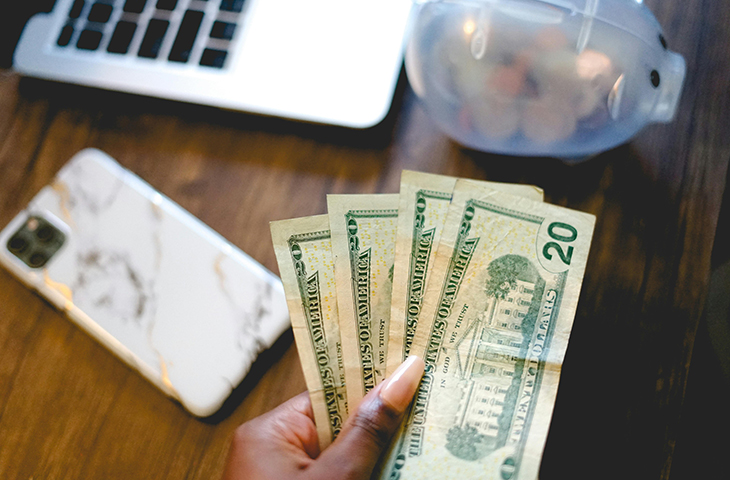2 Quality Dividend Stocks Down Over 40% To Buy Before A Rebound

The stock market's climb over the last few years has driven dividend yields to multiyear lows. The S&P 500 average yield is just 1.24% -- the lowest yield since 2000.
The bull market has driven valuations for growth stocks higher, while weak consumer spending trends have left top retail stocks trading at discounts and offering attractive yields. Here are two excellent retail stocks that can boost your passive income.
Where to invest $1,000 right now? Our analyst team just revealed what they believe are the 10 best stocks to buy right now. See the 10 stocks »
1. Nike
Nike (NYSE: NKE) is the top footwear brand in the world with $49 billion in trailing 12-month revenue -- two thirds of that comes from footwear. Weak consumer spending has contributed to lower sales at Nike, which fell 8% year-over-year in the November-ending fiscal second quarter. The stock has tumbled 57% off its all-time high, while offering the highest dividend yield in 15 years.
There's nothing wrong with Nike's brand or competitive position. Air Jordans are still highly sought after by sneaker collectors, and of course, the company's high annual sales indicate a lot of people are still buying Nike shoes.
Nike will return to growth, and the share price will recover; it's just a matter of when. New CEO Elliott Hill, who is a longtime company veteran, is returning the brand to what it does best: sports innovation. Nike's running footwear outperformed sales in other categories last quarter, which indicates this is the right strategy.
Importantly for dividend investors, Nike is still a profitable business that can continue distribute cash to shareholders. Analysts expect full-year earnings to be $2.06, according to Yahoo! Finance, down from $3.73 in fiscal 2024. But that should mark the low point before a return to growth. Analysts expect Nike's earnings to rebound in fiscal 2026 to $2.50.
Management sees the company's struggles as temporary, as Nike raised the quarterly dividend by 8% in November to $0.40. This represents 78% of fiscal 2025 expected earnings and provides wiggle room to keep growing the dividend as management works to firm up the bottom line.
The forward dividend yield is currently 2.06% at the current $77.50 share price. With the footwear industry expected to grow over the long term, this is a great opportunity to invest in the leading brand at a discount.
2. Target
Target (NYSE: TGT) is one of the top dividend payers. It has paid a dividend every year since 1967, which covers a lot of economic cycles and periods of weak consumer spending. This long dividend record indicates a durable business that can potentially pay you dividends for a lifetime.
Target's focus on discretionary categories like apparel and toys means it is sensitive to consumer spending trends. The stock is down 47% from its previous peak. Comparable sales grew just 0.3% year-over-year in the third quarter.
However, holiday sales during November and December showed a noticeable uptick, with total sales up 2.8% and comp sales up 2%. The company called out much better sales of apparel and toys, where discretionary times posted a sales acceleration over Q3.
Target is in fine shape to continue paying dividends. Analysts expect the company to report earnings of $8.67 in 2025, which is expected to be slightly down from last year. But analysts expect earnings to rebound to $9.27 in 2026.
The current quarterly dividend is $1.12, or 52% of 2025 expected earnings, bringing the forward yield to 3.18% at the current $140.75 share price.
The stock will likely move higher as sales improve, but investors are getting paid a generous yield to wait. Investors that hold the stock until the economy is firing on all cylinders again should see solid returns.
John Ballard has no position in any of the stocks mentioned. The Motley Fool has positions in and recommends Nike and Target. The Motley Fool has a disclosure policy.


